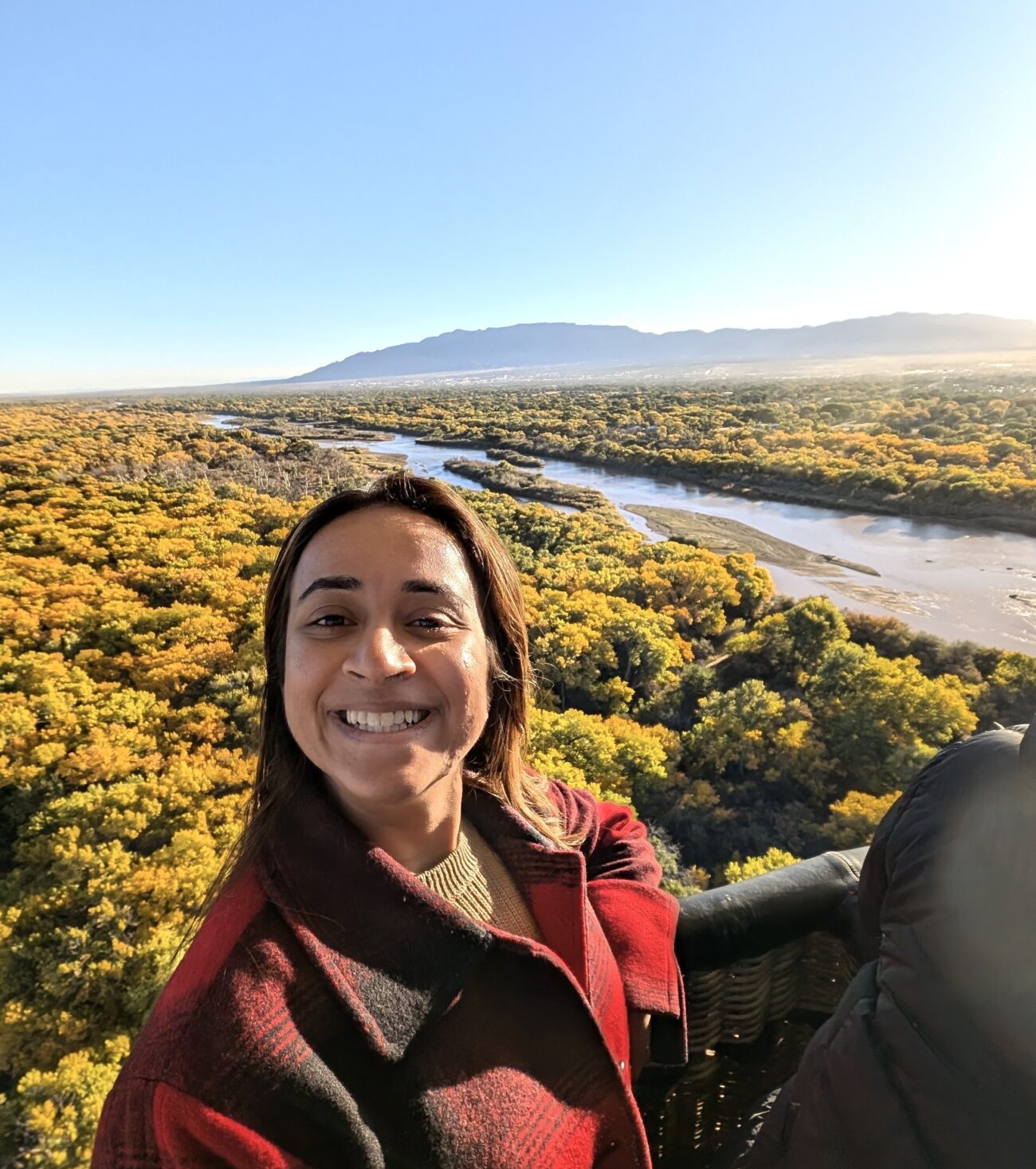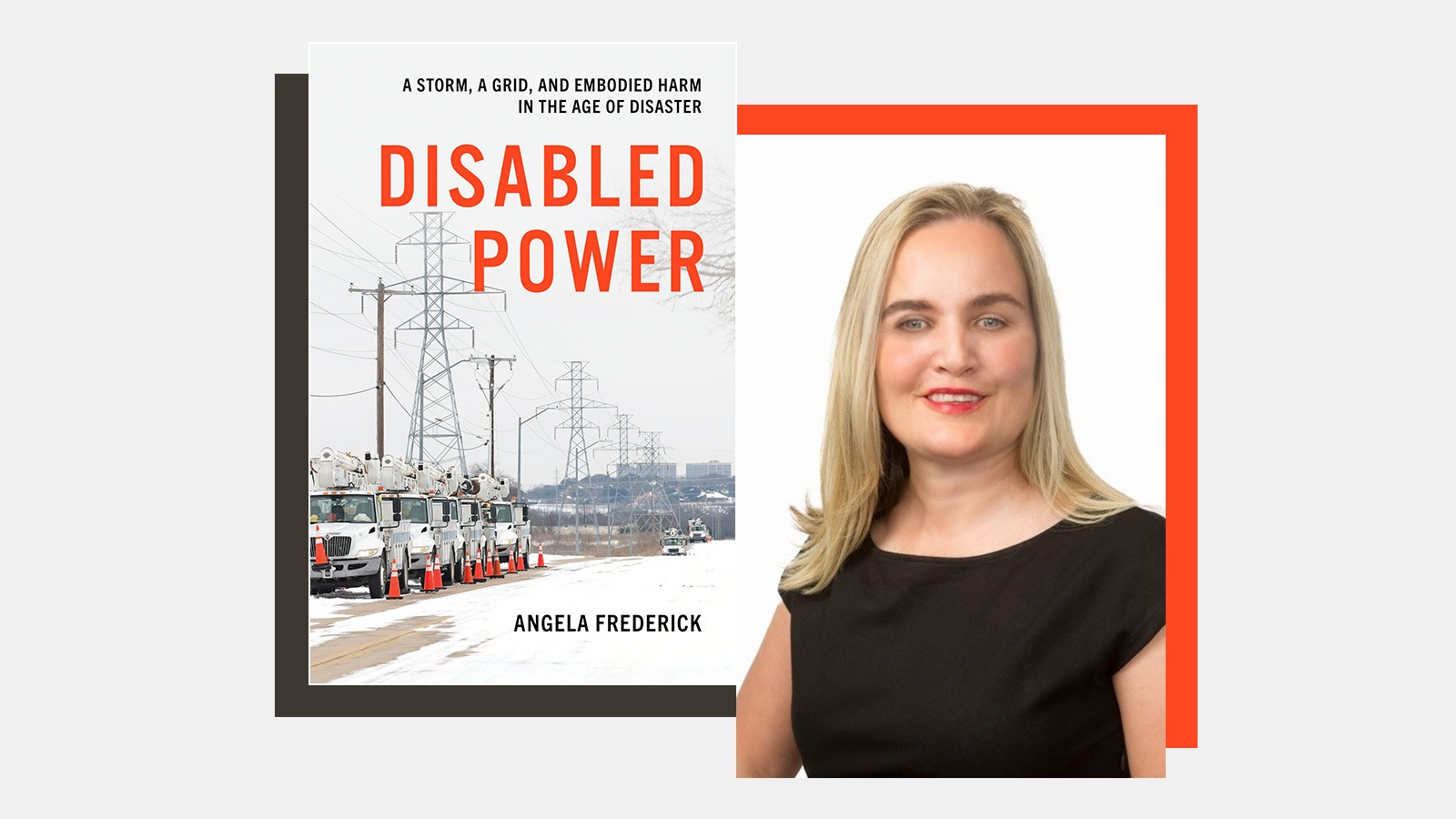Garima Raheja spent her childhood in New Delhi, India, where she saw firsthand the negative effects of pollution on the bustling city around her. Later, in the Bay Area in California, Raheja lived with the looming presence of wildfires. These experiences inspired her to seek out avenues for quantifying and reducing the impacts of climate change, especially on the most vulnerable populations.
As a Ph.D. candidate in the Department of Earth and Environmental Science at Columbia University and the Lamont-Doherty Earth Observatory, Raheja researches machine learning methods for measuring air pollution in marginalized communities across the world, as well as strategies for decarbonizing the energy grid. Read more about Raheja’s journey and the women who have inspired her in the Q&A below.
How did you get into science?
I grew up in New Delhi, India, which is one of the most polluted cities in the world, and then moved to California, where the wildfires became a daily part of our lives, and now I live in New York which turned orange last summer, so I think the fires are following me and I can never quite put them out of my mind. Living in California, I was inspired by the technology of Silicon Valley, and wanted to do impactful technological science that mitigated the worst effects of climate change on the most vulnerable populations. At the White House under the Biden Administration, I got to work on decarbonizing the United States energy portfolio, and I hope to keep working on decarbonization and climate science.
Is there a woman in science, from Columbia or otherwise, who inspired you?
So, so many women have inspired me. My mom, Pratibha Raheja, is a former pharmacist and current science teacher who inspires hundreds of students every year to find their curiosity through hands-on science. At Columbia, Faye McNeill always leads by example, showing me and many other women how to be a leader while also being fun and having a vibrant life outside of work.
Additionally, I’m inspired by Colleen Rosales at OpenAQ, who is a great mentor and supporter, and a fantastic collaborator! I have been lucky enough to work with Colleen on a number of projects and I am always motivated by her thoughtful and insightful contributions to her work. Also I am a huge fan of Jackie Klopp at Columbia, Misbath Daouda at UC Berkeley, Pallavi Pant at the Health Effects Institute, Saumya Singh at IIFM Bhopal, Lyssa Freese at UC Irvine, Ana Hoffman at CREATE Lab, and Julia Jeanty and Natasha Udu-gama, both at Thriving Earth Exchange.
“I would not be anywhere without this community of supportive women, and I hope to keep growing this community and supportive women of color across the field.”
Statistically, women represent only 33% of researchers and tend to receive smaller research grants than their male colleagues. Have you faced such challenges as a woman scientist? Do you see things improving?
I’ve definitely faced such challenges, and they are exacerbated by being a woman of color. There is still a lot of implicit bias in higher education and in the professional world. Luckily I am surrounded by amazing women who take the time to mentor me and encourage me even when the state of women’s rights seems to be in global decline. I would not be anywhere without this community of supportive women, and I hope to keep growing this community and supportive women of color across the field!
Source link
Olga Rukovets news.climate.columbia.edu


